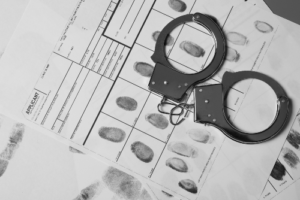Legally Reviewed By:
Brian P. Gabriel, Esquire
 Domestic violence includes charges of domestic assault and battery, common offenses that present prosecutors with a challenge. In a domestic violence case, there are usually only two witnesses––the alleged offender and the alleged victim––who may recall the events that took place before the police arrived. In these situations, it is a given that these parties often have contradicting accounts, making it difficult for the prosecutor to gain a conviction, especially if the alleged victim is unwilling to cooperate with law enforcement or testify in court.
Domestic violence includes charges of domestic assault and battery, common offenses that present prosecutors with a challenge. In a domestic violence case, there are usually only two witnesses––the alleged offender and the alleged victim––who may recall the events that took place before the police arrived. In these situations, it is a given that these parties often have contradicting accounts, making it difficult for the prosecutor to gain a conviction, especially if the alleged victim is unwilling to cooperate with law enforcement or testify in court.
Does this mean that your domestic violence case will be dismissed if the victim doesn’t testify? It might be. To figure that out, you will need to work with an experienced domestic violence defense lawyer to thoroughly evaluate your case.
Whether the prosecutor chooses to dismiss your case and drop charges against you depends on the specific facts of your case. If the victim does not show up in court for the trial and the prosecutor does not believe he can prove the case without their testimony, the prosecutor should drop the charge against you. However, prosecutors may continue prosecuting the case regardless of whether the victim testifies.
Can a Prosecutor Force a Domestic Violence Victim to Appear in Court?
When a victim refuses to testify, prosecutors don’t typically let them off the hook. Prosecutors can try to get victims to testify by executing a few different techniques.
- They may verbally tell the alleged victim that they are required to appear in court
- They may request the court serve the alleged victim with a subpoena. A subpoena is a court order requiring the alleged victim to appear in court. Individuals who ignore subpoenas may face consequences.
- They may threaten to seek a material witness warrant for their arrest if they refuse to testify after being subpoenaed.
Until a witness is served with a subpoena, the prosecutor cannot compel them to appear in court. It is up to the judge to issue a material witness warrant, and prosecutors do not seek them in each case.
When Might a Domestic Violence Charge be Prosecuted Without Testimony from the Victim?
There may be other types of evidence available in your domestic violence case that may encourage a prosecutor to bring your case to trial, despite not having the victim’s testimony. Other types of evidence of domestic assault or battery may include:
- Eyewitness testimony from other witnesses to the abuse
- Video footage
- Audio recording of the victim’s 911 call describing the abuse
- Other evidence the state may have against you
In some cases, it may be possible to exclude the audio of the 911 phone call when the victim refuses to testify. To learn what other types of evidence the state may have against you, it’s important to talk to your criminal defense lawyer. They may be able to uncover everything the state intends to introduce at trial to craft a strong defense.
When Might a Prosecutor Drop My Domestic Violence Charge?
Prosecutors must prove every element of a crime beyond a reasonable doubt to gain a conviction. This is a high standard to achieve, especially when valuable testimony is withheld. A prosecutor who is not convinced that he may gain a conviction with the evidence available may choose to dismiss your case.
The elements of domestic battery include:
- Actual and intentional touching or striking of another person without consent, or
- Intentionally causing bodily harm to another person when the person hurt is a family or household member.
Florida law defines a “household member” as:
- Spouses
- Ex-spouses
- Individuals related by blood or marriage
- Individuals living together as a family
- Two people who share a child
- Individuals who have resided as a family in the past
Don’t Take Chances When Facing a Domestic Violence Charge
Without sufficient evidence, it is especially challenging to prove the intent portion of the charge. If your alleged victim refuses to testify, there may be a good chance that your case will not lead to a trial. Contact Brian Gabriel at the Law Office of Gabriel & Gabriel to learn more by calling 561-622-5575 for a free consultation or completing a contact form. Attorney Brian P. Gabriel has served the greater Palm Beach area for more than 30 years as an advocate for individuals facing criminal charges.



